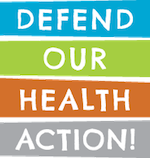How the Global Plastics Treaty Can Change Our Relationship With Plastic For The Better
As we inch closer to the fourth session of the Global Plastic Treaty negotiations, it is important to understand our current relationship with plastic, how we got here, and how the Global Plastics Treaty can improve our relationship with plastic.
Our dependence on plastic production from fossil fuels began in the 1960s, and for the past 65 years, we have seen an increase in plastic pollution through air, soil, water, and aquatic animals. According to Biomed Central, because of its [plastics] durability, it is both ephemeral (short-lived) and enduring. It will outlast its useful life, thus turning it into long-lasting waste that does not biodegrade.
The first scientific findings of marine plastic debris were published in the journal Science in 1972, reporting on small plastic particles found in the Sargasso Sea. As time has progressed, our reliance on plastic has grown exponentially, and there is countless research to show that plastic in all phases of life (i.e., in production, while being used, and how it is discarded) is a danger to human health.
In March of 2023, Defend Our Health released a report titled Hidden Hazards: The Chemical Footprint of a Plastic Bottle, that tracked the lifecycle of the common plastic known as polyethylene terephthalate or PET and the threat that it has on human health, environmental justice, and climate change. This present-day research shows how our dependence on plastic severely pollutes the air that we breathe (through plastic production), harms our bodies (through chemicals in the bottle itself), and harms the planet (through plastic waste via recycling). All of these issues fall disproportionately on Black and Brown communities, which have been dubbed “Sacrifice Zones” with the most well-known given the moniker “Cancer Alley.”
With the Coca-Cola Company, one of the biggest corporations in the world with a widely consumed product, being hailed as the “#1 plastic polluter in the world,” now more than ever, we need a concrete, legally binding resolution from our government officials to curb plastic pollution in all of its forms.
The Global Plastics Treaty is a resolution agreed upon by 175 nations to develop a legally binding agreement on plastic pollution by 2024 (this year!). The focus is to take major steps towards reducing greenhouse gas emissions from plastic production, use, and disposal.
According to the United Nations, the rapidly increasing levels of plastic pollution represent a serious global environmental issue that negatively impacts the environmental, social, economic, and health targets of sustainable development. In the absence of crucial interventions, the amount of plastic waste entering aquatic ecosystems could nearly triple from some 9–14 million tonnes per year in 2016 to a projected 23–37 million tons per year by 2040.
The Global Plastic Treaty can change our relationship with plastic by decreasing or outright abolishing our hyper-dependence on plastic. To reach this point, we must define tangible steps and timelines necessary to change how we produce and consume high-risk plastic.
- Phasing out all unnecessary plastic products that pose a high pollution risk, including single-use items and excessive packaging.
- Establishing binding and specific design requirements for plastic products that lead to a decrease in plastic consumption.
- Matching strong binding measures with ambitious mechanisms to enable effective implementation and a just transition, including robust technical and financial assistance.
The fourth session of the treaty negotiations takes place April 23rd – 29th of 2024. All eyes are on the Global Plastic Treaty negotiations because the fate of humanity’s future hangs in the balance. We must change our current relationship with plastic if we want to save ourselves and the planet.
Want to take action with the press of a button? We are currently circulating two petitions tackling plastic:
- Sign our petition urging the Coca-Cola Company to put consumers first and get rid of toxic plastic bottles by moving to secure commitments from its suppliers to end any use of toxic plastic additives like antimony that may be harmful to our health.
- Sign our petition urging the Coca-Cola Company and its bottlers to change the course of history and lead the beverage industry once again by bringing back refillable bottles and supporting state-mandated refill quotas.
P.S. – Help us continue this fight against PFAS contamination by pitching in today!
